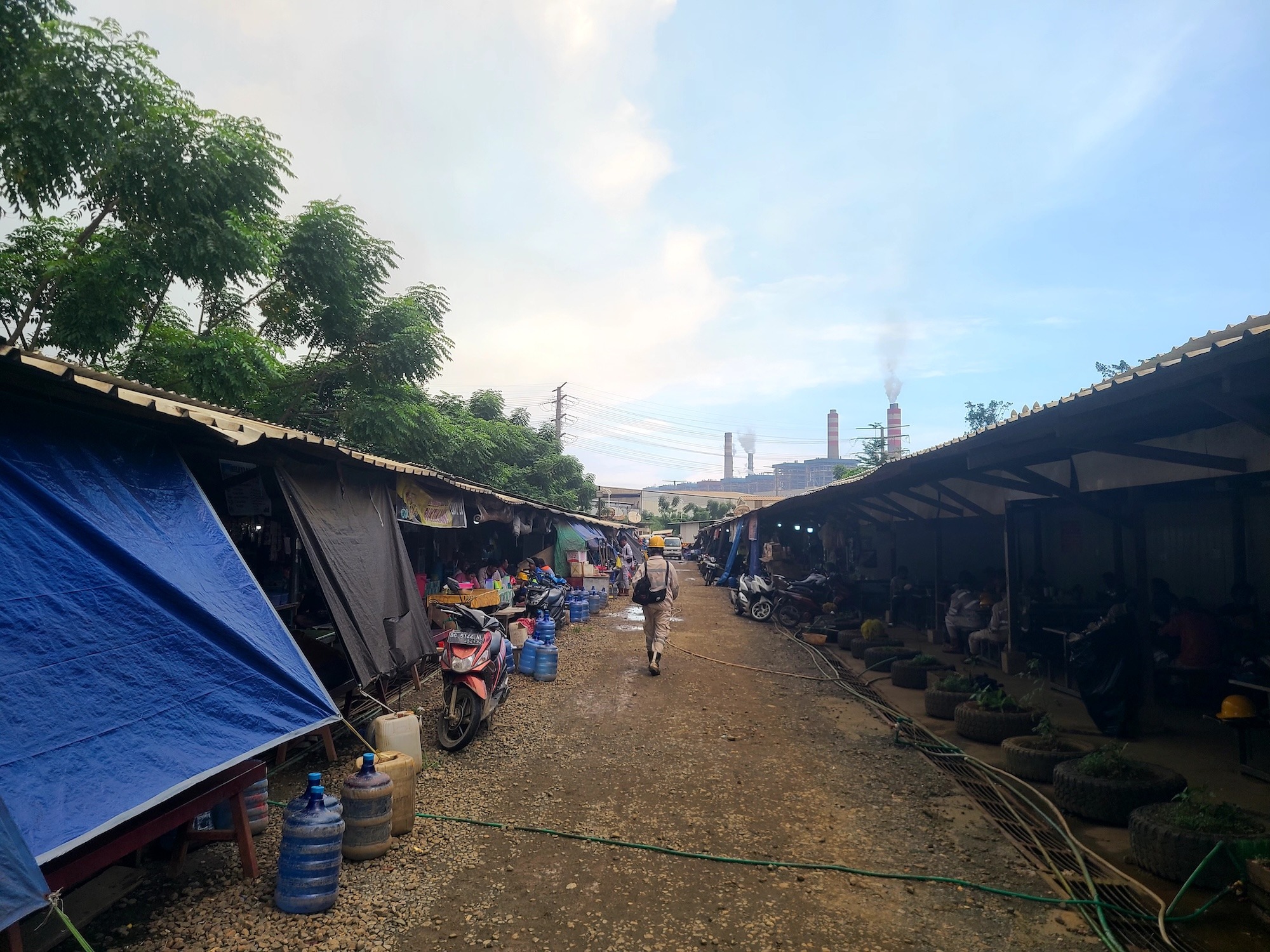As W.H. Wong hugged his family goodbye before leaving for work on a quiet morning this spring, he felt a lump in his throat. He was headed more than 2,500 miles away, to an Indonesian island so remote that locals say it’s one of the places where spirits go to abandon their children.
After two weeks at home in Wenxi, a rural county of 350,000 in China’s northern Shanxi Province, the 39-year-old was once again making the grueling 36-hour journey to his job at the Indonesia Weda Bay Industrial Park, a sprawling compound of metal-processing industries in North Maluku, an eastern Indonesian archipelago.
Indonesia controls more than 40 percent of the world’s identified nickel, and the mountains that surround the industrial park in North Maluku contain the largest known deposit. To get there from China, Wong would first take two flights to cross the South China Sea to Manado, a beach town on the northern tip of Sulawesi, one of Indonesia’s largest islands. From there, he’d catch another flight to North Maluku, then a speedboat to the island of Halmahera. Another arduous three-hour journey across the island’s white beaches and lush hills would get him to the industrial park. It would be home for the next six months.
Clad in a navy blue, heat-resistant uniform and a yellow safety cap, Wong does 12-hour shifts operating one of the facility’s dozens of furnaces. He leads a team of nine Chinese and 16 Indonesian workers to produce nickel pig iron, which is used to make stainless steel and can be converted to nickel matte, a key cathode ingredient in the batteries used in electric vehicles. Wong averages more than 20,000 steps every shift, and he takes them in 90-degree heat and humidity so high it feels like walking through warm soup.
But the hardest part, he said, is being thousands of miles away from his wife and two kids for extended periods.
“If I could get a job that pays enough in China, I would have never left,” said Wong, who asked to be identified by his initials and last name for fear of retribution at work.
Wufei Yu
Driven by economic and social pressures, tens of thousands of workers from China, mostly middle-aged men, are employed in eastern Indonesia’s nickel industry, which has sprung up in the last decade. Just as critical minerals crisscross the globe before they’re incorporated into cutting-edge products, so too do some of the people who make the world’s green dreams a reality.
Over seven months, Grist spoke to more than a dozen of these Chinese workers and their family members, as well as Indonesian labor leaders who have negotiated factory conditions with top Chinese executives. We’ve found that, even following fatal accidents at the smelters, efforts to improve working conditions have been slow, hindered by a lack of oversight from companies, governments, and international labor groups that were dependent on U.S. funding terminated by the Trump administration. We also obtained an internal company review of a nickel smelter expansion that shows facilities are likely spreading pollution and illness well beyond factory walls. Despite the challenges, new nickel processing plants continue to emerge in Indonesia and hire from China.
Before joining Indonesia’s nickel rush, most of these Chinese men had spent almost all their lives in their home country, working in declining steel factories. Like Wong, they had never before owned a passport or boarded a flight. Their leap into the nickel refining industry has helped create entire towns on remote islands in Indonesia, and it’s made them an unlikely backbone of the world’s green energy transition.
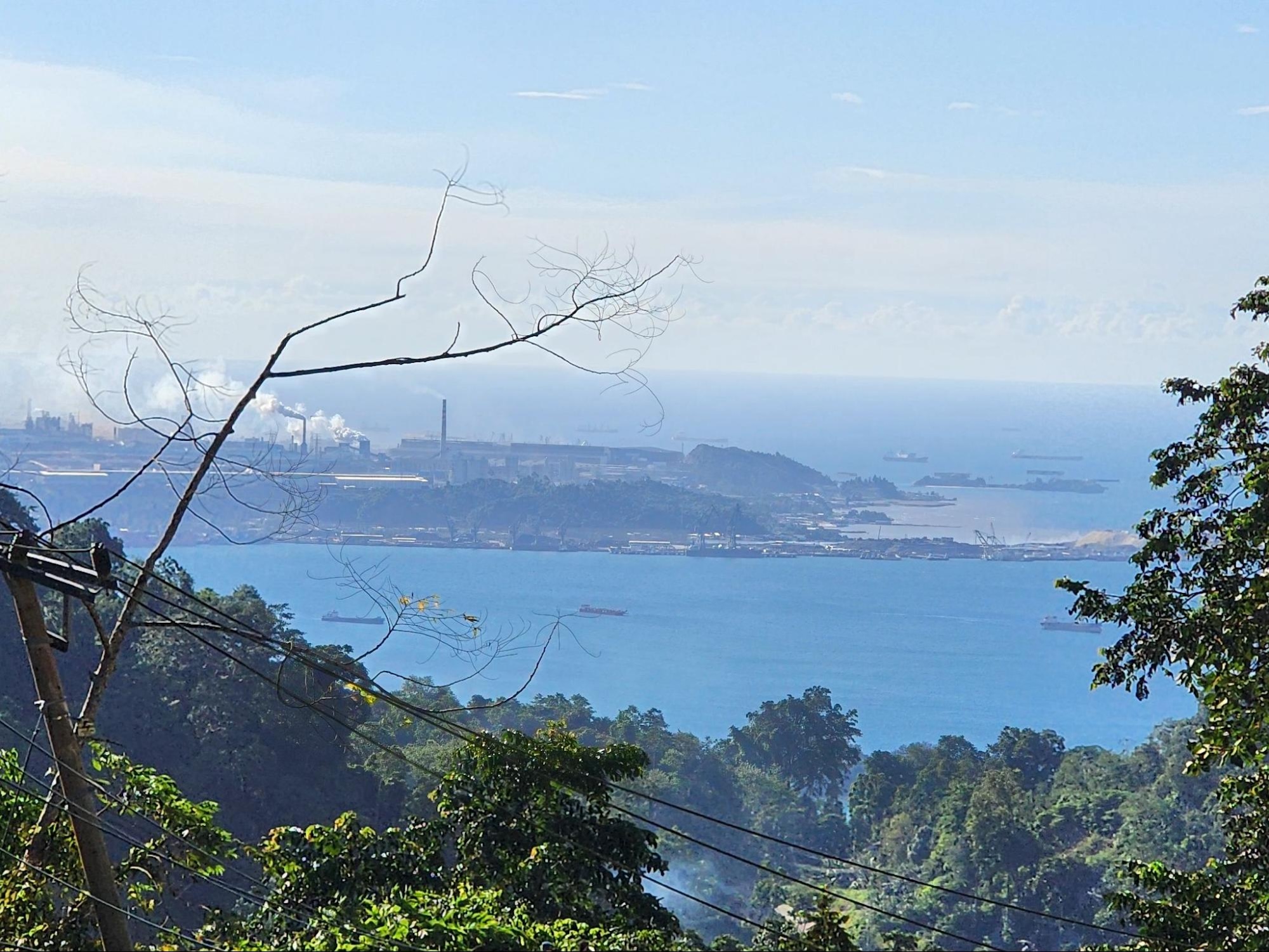
Wufei Yu
The men work alongside hundreds of thousands of Indonesian colleagues. Though Indonesia is the world’s fourth-most populous country, its workforce does not have the industrial experience needed in the new facilities. Companies have turned to China to fill the gap. According to the Indonesian Nickel Miners Association, an organization that represents nickel mining companies and gathers statistics and generates industry trend reports, most domestic workers have learned almost everything from their more experienced (and better paid) Chinese colleagues, from operating heavy machinery to welding bricks inside a smelter. Together, the labor force faces the kind of dangerous working conditions that have largely vanished in wealthier countries like the U.S. But Indonesia’s domestic workers have even fewer job prospects than their Chinese colleagues.
Nickel is a crucial component of EV batteries and energy storage systems. More nickel in an EV battery pack means longer mileage and improved performance from a single charge. More than three-quarters of the cathode material in models like the Tesla Cybertruck, Ford F-150 Lightning, and premium electric sedans is composed of nickel. The metal is also used in solar panels and wind turbines. It’s hard to imagine a global transition away from fossil fuels without it. Last year, Indonesia produced approximately 2.2 million tons of nickel, accounting for around 60 percent of global production.
But the nascent energy transition comes at a steep cost to the workers driving it. In late 2023, a nickel furnace at an industrial park in Sulawesi exploded after workers cut into molten waste that hadn’t fully cooled, killing 21 workers. Burns and respiratory ailments are common. Companies in Weda Bay and other industrial facilities also routinely confiscated Chinese employees’ passports to manage and control the workforce until late last year, a practice deemed unlawful by the United Nations but only recently outlawed by the Indonesian government. Almost all Chinese workers live in residential quarters inside the compounds. They are often prevented from leaving the parks, with some only allowed to leave between 5 p.m. and 7 p.m. each day. (In an email, the Indonesia Morowali Industrial Park told Grist that language barriers, “cultural and habitual differences” around issues like alcohol consumption, and “their potential to lead to acts of violence are what make them restrict Chinese workers” who want to leave the complex.)
Indonesian workers, the Chinese companies that run the nickel factories, and international labor and environmental organizations have been attempting to improve working and living conditions. But the few changes that have taken place have come slowly. And such efforts have been hamstrung by the Trump administration’s new Department of Government Efficiency, or DOGE, which terminated almost all international grants from the U.S. Department of Labor. Those grants funded various initiatives to improve labor rights, occupational safety, and health, including in Indonesia.
Despite the risks, the pay has kept Chinese workers returning. Wong’s monthly after-tax salary of roughly $2,300 is more than three times that of an experienced worker in Wenxi’s steel factory, where Wong worked from 2010 to 2012. He’s the only working member of his family, and he says he needs at least $70,000 for his 9-year-old son’s eventual wedding, which includes a bride price of around $30,000. (Common in wedding traditions in some parts of China, a bride price is a sum of money the groom’s family pays the bride’s family.)
“Just look at the fellow Chinese around me,” said Wong. “Some got divorced. Others had failed business ventures. And there are folks like me who don’t have enough in our pockets for ourselves and our families. We came with different stories, and we are trying to reimagine ourselves.”
Indonesia didn’t become a hotbed for nickel smelting and manufacturing until 2014. That year, the country decided to ban the export of unprocessed ore to boost domestic processing capacity and increase exports of finished nickel products. The government touted the benefits of “downstreaming” the industry — processing raw materials locally and adding value to its minerals to dominate the global supply chain as the country tried to attract investments and create jobs for its young population.
Chinese metal and stainless steel giant Tsingshan Holding Group was among the first companies to answer Indonesia’s appeal. In the early 2010s, an infrastructure boom in China prompted Chinese factories to find nickel mining pits overseas to sustain their steel supplies.
In July 2013, Tsingshan agreed to build the Indonesia Morowali Industrial Park, a nearly 8,000-acre complex of smelters, factories, and captive-coal power plants, which serve its industrial operations and the surrounding villages but don’t feed into the grid, on the eastern shore of the island of Sulawesi. In 2018, three years after the Morowali Industrial Park started production, a similar deal was signed 450 miles east in North Maluku for the construction of the Weda Bay Industrial Park. At 12,000 acres, the complex’s footprint is about the size of 14 Central Parks. In 2020, the Weda Bay complex smelted its first batch of nickel, and Indonesia surpassed China to become the world’s largest producer of the metal. Tsingshan became the major stakeholder in Indonesia’s largest industrial complexes.

Wufei Yu
Today, the industry employs more than 230,000 nickel workers and is attracting college graduates, farmers, grade-school teachers, and government workers from various parts of Indonesia. Tsingshan’s industrial parks host dozens of tenant companies, producing over half of Indonesia’s nickel output. Businesses from China, South Korea, Australia, Brazil, France, and elsewhere have poured billions of dollars into nickel refineries on remote islands in eastern Indonesia. According to the Indonesian Nickel Miners Association, more than 54 smelters and hydrological processing plants are in operation across the country, and at least another 92 are in the construction and planning stages.
“It’s almost impossible to transition away from fossil fuels without nickel from Indonesia,” said Johnny Linghui Ni, a United Kingdom-based research analyst for Project Blue, a data provider on critical minerals. “And it may stay this way until at least 2030, if not longer.”
As Chinese companies like Tsingshan began expanding their footprints in Indonesia, they needed experienced industrial workers, and they needed them quickly. China’s northern hinterland became prime recruiting grounds. The region, which has a concentration of heavy industries, had suffered massive job losses when the country’s real estate market slumped, reducing demand for construction and building materials like concrete and stainless steel. Steel prices plummeted due to factory overcapacity. Plus, new environmental regulations forced polluting companies to shut down or scale back significantly, pushing working-age men to look for jobs overseas.
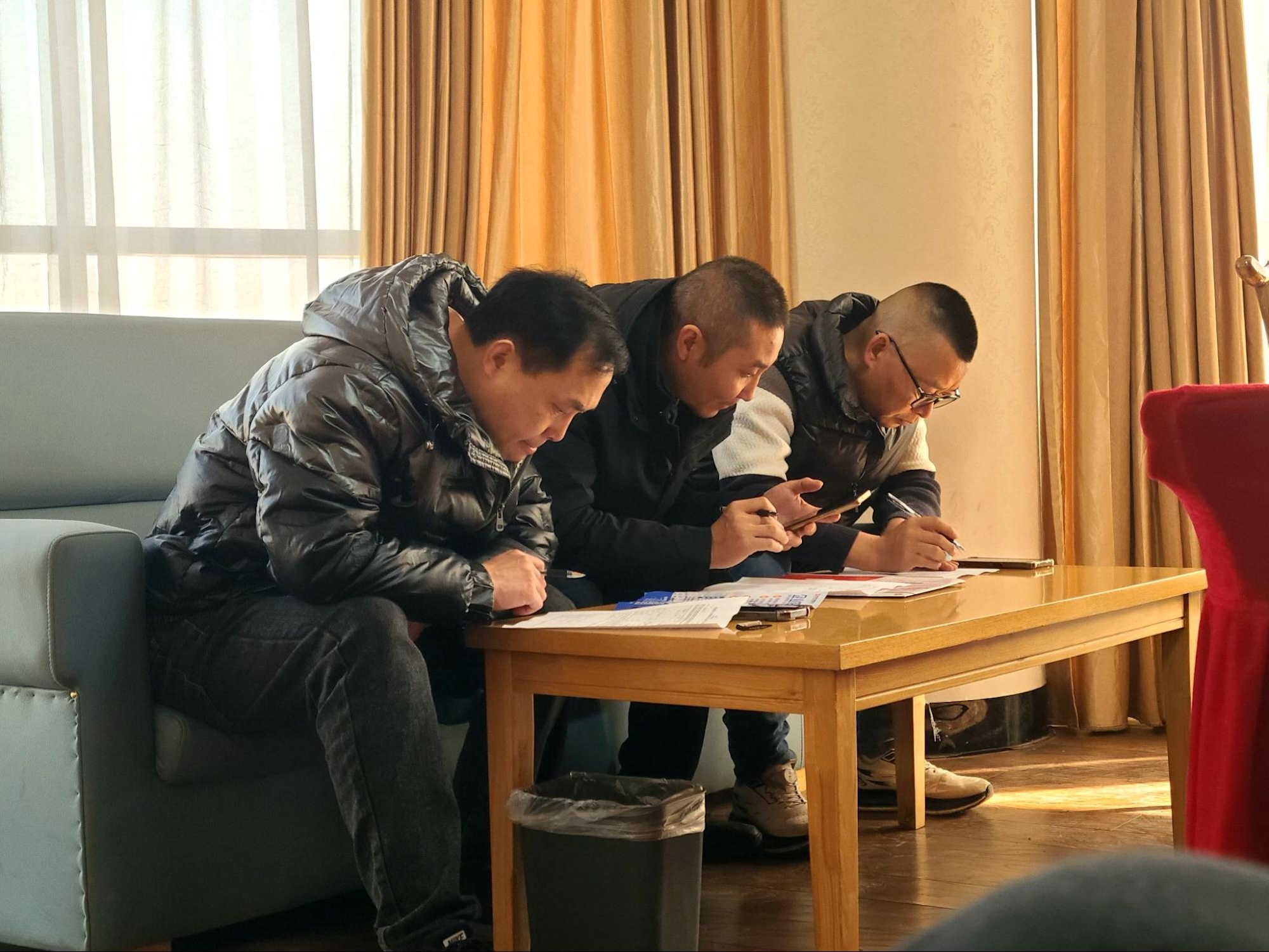
Wufei Yu
Nickel refining companies began organizing job fairs in the northern inland provinces, promising to at least double workers’ monthly income. “Tsingshan started to snatch up economically-strained factory workers nonstop in droves,” said Jiahui Zeng, an anthropologist studying eastern Indonesia’s nickel belt at Tsinghua University in China. “For Chinese nickel workers, migration is pushed by family pressure, such as buying an apartment in a better school district for their children or preparing for a son’s marriage.” But these pressures make Chinese workers extremely vulnerable.
“Terrified of losing their income, they are reluctant to organize and wary of speaking out in Indonesia,” she added.
One of the first workers to be recruited in Wenxi was Z. Gwok. From 2009 to 2015, Gwok worked at Wenxi’s steel plant. But by the end of 2015, burdened by large debts, Wenxi’s steel mill laid off half its workforce. It could no longer afford to pay Gwok’s $600 monthly salary, so management put him on a six-month sabbatical. To seek a better school district for his 2-year-old daughter, Gwok had been saving up for a $130,000 apartment in a major city 40 miles from his village. He saw a listing for a job at the Morowali complex and decided to “roll the dice and gamble,” he told Grist.
A few weeks later, Tsingshan hired him, helped him apply for his first passport, and flew him to the industrial park. The company assigned him a window seat, he recalled, and he gazed at the clouds and enjoyed the bird’s-eye view of the azure sea and forested isles. (Like most Chinese workers Grist spoke to, Gwok chose to go by his initials and last name for fear of retaliation at work.)
Gwok operated one of the first four blast furnaces at the industrial park and managed two junior workers from Indonesia, earning $1,700 every month. Six months later, when he and other Chinese workers returned home for vacation and shared their experiences, their family members and friends applied for similar openings online or went to Tsingshan’s annual job fairs.
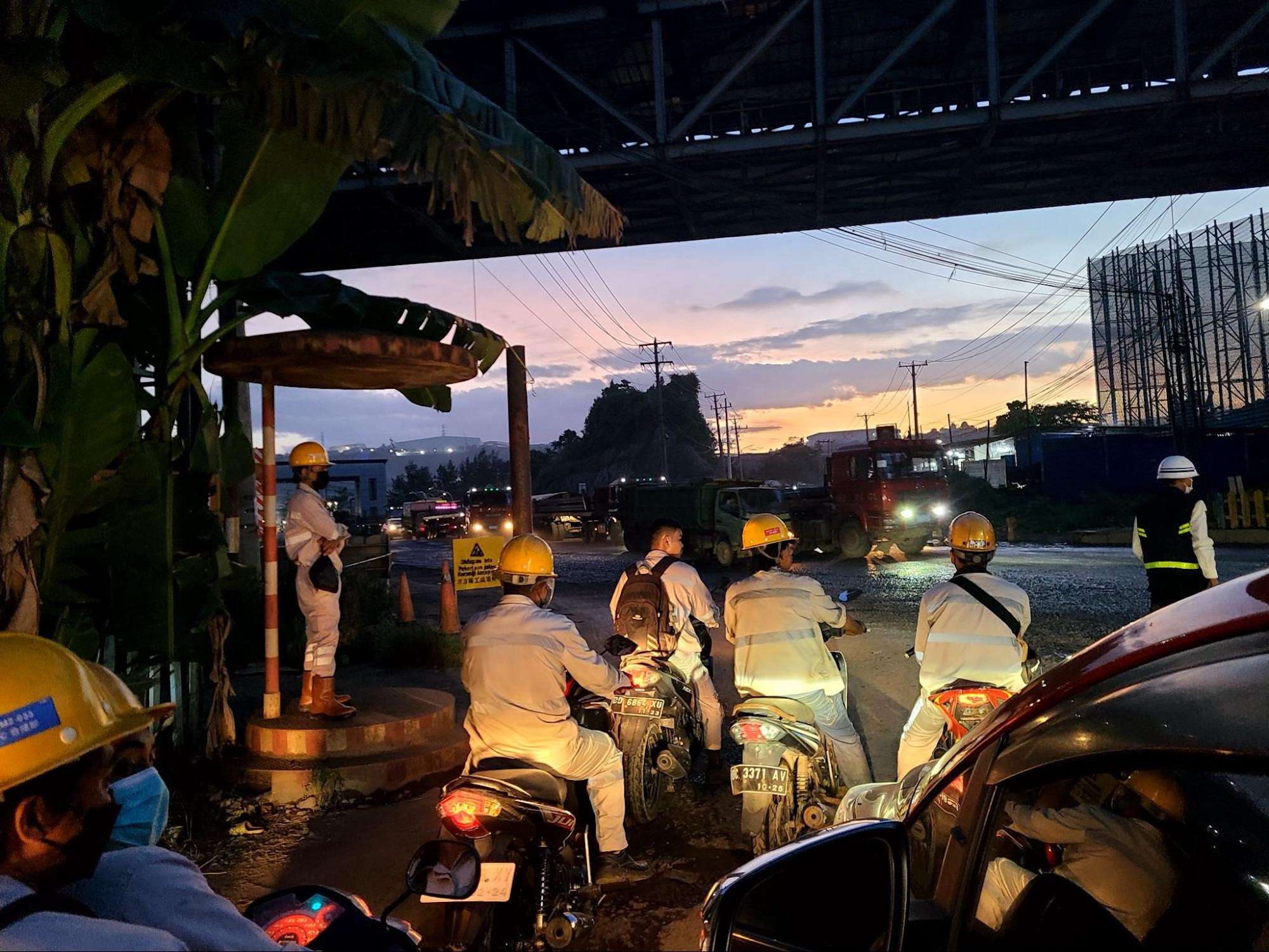
Wufei Yu
W.H. Wong heard about the nickel jobs in Indonesia in 2022 while at Tsingshan’s annual job fair in Wenxi after Lunar New Year. Wong saw the eye-popping salary numbers on the flyers, tripling what he earned working at a factory making exhaust pipes for cars. “It felt like a scam,” Wong recalled. He brushed it off as too good to be true.
But a few months later, Wong’s middle school classmate, who had taken a job at the Weda Bay Industrial Park to pay down $60,000 in debt from a failed business, shared screenshots of his payslips. Wong applied for an opening right away.
After he was hired, Tsingshan held an orientation session in China’s coastal Fujian Province. Wong recalled the instructor telling them there were more than 40 accidents in the industrial parks each year that resulted in severe injuries and even deaths. (Tsingshan Holding Group declined to corroborate this account when contacted by Grist.) “I didn’t understand much at the time,” said Wong.
But before long, Wong had two close calls of his own. First, he burned the back of his right hand when metallic liquid from the furnace splashed at the exit of the waste tunnel as he was walking past. And one night after heavy rain, soon after he clocked out and left the furnace, Wong stepped on what he thought was a puddle, only to find out that it was a neck-deep pond. Not knowing how to swim, he was only able to save himself by grabbing a nearby pole and pulling himself out of the water.
Some workers he knew weren’t so lucky. An Indonesian colleague suffered severe injuries to his fingers after disregarding safety protocols to manually fix a glitch in the pouring chain. Another Chinese worker walked onto the top of an electric furnace in wet working boots and was instantly electrocuted into unconsciousness. (Without commenting on individual incidents, the Weda Bay Industrial Park told Grist that all incidents are recorded and serious ones are “investigated thoroughly to strengthen training and improve operational safety standards.”)
Still, nothing hit closer to home for Wong than the explosion that occurred at the Morowali Industrial Park on Christmas Eve in 2023. At around 5:30 a.m., a maintenance team was repairing a blast furnace. The facility was overstocked with smelting residues, also known as slag. According to an internal notice provided by two Chinese employees who wished to remain anonymous, the team was charged with replacing bricks and cleaning the slag.
But the furnace hadn’t been cooled down enough when welders began to replace the heat-damaged bricks. The slag was still molten, and it overflowed, causing nearby tanks with combustible chemicals to explode. To escape, the workers jumped from an opening in the furnace more than 30 feet above the ground. As the explosions continued and smoke poured out, workers tried to flee. Some collapsed in the middle of the road, while others covered their injured arms and limped away. Eight Chinese and 13 Indonesians were killed.
Wong was finishing his night shift in the Weda Bay compound when the blast occurred. Shortly after, his WeChat was flooded with messages from friends and family inquiring about his well-being and whereabouts, as well as sharing information they’d found on social media. One of the dead was 37-year-old furnace mechanic Hung Chun Lie, who went to Sulawesi in 2021 in hopes of paying back roughly $35,000 his family had borrowed for his mom’s knee replacement surgery and to renovate their dilapidated house. He had planned to make money, pay off the debts, and return.
Wong would later learn Lie was also from Wenxi and was a distant relative. When they were little, the two families visited each other during the Lunar New Year holidays. Like Wong, Lie learned to work on a furnace at Wenxi’s steel factory for years, did odd jobs in China’s eastern coast to make ends meet when the mill became unprofitable, and migrated to Indonesia for smelter jobs. In Indonesia, both of them imparted training to junior Indonesian workers and were promoted to team leads.
“As a leader, whenever something dangerous occurs in your area, on or off the shift, you are the first to be there and check it out,” Wong told me. “I feared for my own life and family when I heard about his death. It could have been me.”
The deadly blast exposed the nickel industry’s health and safety practices to broader, deeper scrutiny. To mitigate the concerns, the top executives of Chinese investors, including Tsingshan, flew their delegates to Jakarta, the Indonesian capital, and sat down with representatives of Indonesian nickel labor associations from Sulawesi and North Maluku for a closed-door meeting in May 2024.
It was the first time Chinese companies engaged directly with the labor force in Indonesia. Two Indonesian participants, who asked to remain anonymous to relay confidential matters, told Grist that they discussed negligence in following health and safety standards, cramped health clinics, the lack of ambulances, piles of trash on the roads outside industrial parks, and other issues. Both parties agreed to establish a reporting mechanism for complaints facilitated by labor-focused nongovernmental organizations in Hong Kong and Jakarta.
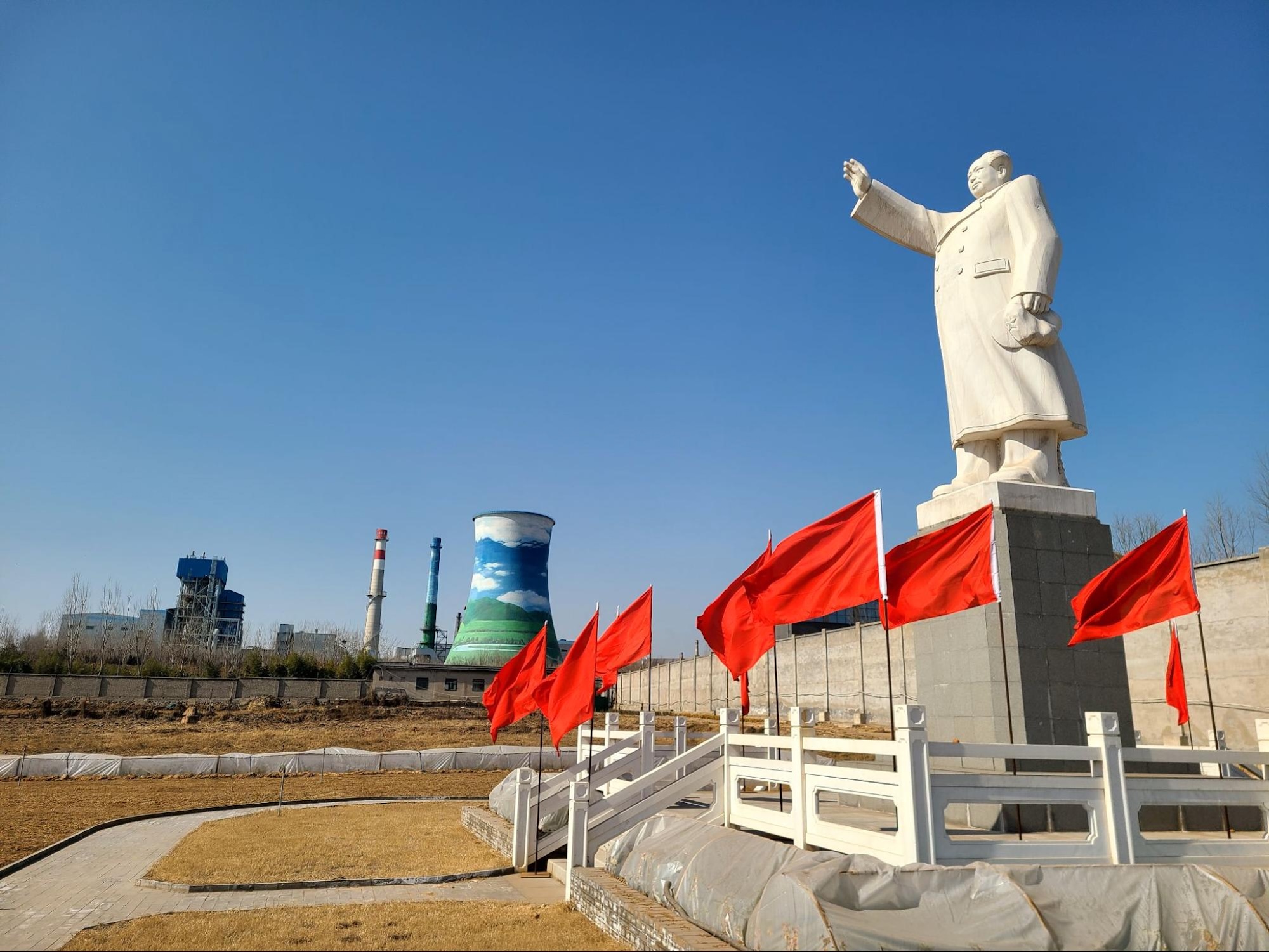
Wufei Yu
After the meetings, both parties appeared interested in limiting health hazards from the massive amount of trash generated by the ballooning workforces. While their Chinese counterparts live in the industrial park, most Indonesian workers rent places in hastily-built shanties in nearby villages, which lack basic garbage disposal infrastructure. The Morowali Industrial Park managers promised to install waste processing units that could handle 80 tons of household garbage a day by August 2024. But when the waste processors did arrive five months late in January, they could only process 40 tons a day. The new devices did little to reduce the piles of trash that lined the roads around the industrial park. More serious concerns about worker safety and health remain unaddressed.
Local and international nonprofits have also been trying to improve worker conditions, but recent budget cuts by the Trump administration have left some crucial aid programs in limbo. The International Labour Organization, a United Nations agency dedicated to advancing global labor rights, is one of the groups that has been affected. According to an officer with the organization who requested anonymity to discuss closed-door negotiations, representatives of the group met with Luhut Binsar Pandjaitan, then the Indonesian coordinating minister for maritime affairs and investment, to discuss the 2023 Morowali accident.
Pandjaitan, who had helmed the country’s nickel initiatives to attract international investment, was supportive of improving occupational safety through on-the-ground workshops. Since then, Pandjaitan’s blessing has helped facilitate the labor organization’s visit to the Morowali Industrial Park, meetings with labor groups in Sulawesi, and at least two “jovial and constructive” discussions with Tsingshan’s top executives from China, the officer said.
Last November, the group received $4 million from the U.S. Department of Labor to execute a project enhancing safety and health at nickel smelters. But, after interference from Elon Musk’s Department of Government Efficiency, the department terminated funding for the nickel smelter program in March, forcing the project to come to a halt.
The project was poised to “contribute a lot to improvements, not only in occupational safety and health issues,” the officer told Grist. “Migration, workers’ living environment, and other issues would also be improved little by little. It is a shame that there are no more donors who are willing to work on this issue.” (On August 27, the Department of Labor started receiving applications for a new $9 million grant to promote fair and reliable critical mineral supply chains.)
Meanwhile, the Morowali industrial facilities continue to expand. In 2023, as part of the government’s review of a proposed 4,400-acre expansion of the complex, the industrial park’s environmental and corporate responsibilities team examined the ecological and public health impacts of the complex. The results of their review, which Grist obtained, suggest the facility’s harmful effects extend far outside factory walls.
The review showed workers at the nickel-processing facilities, as well as residents nearby, were increasingly seeking care for respiratory diseases like tuberculosis, acute pharyngitis, and acute rhinitis. Despite the industrial park being operated by multi-billion dollar corporations, the villages surrounding it still lacked wastewater drainage systems and access to clean water. In six villages outside the complex, a quarter of the residents live less than 30 feet from polluted water sources, and 41 percent of the residents have symptoms of dry cough.
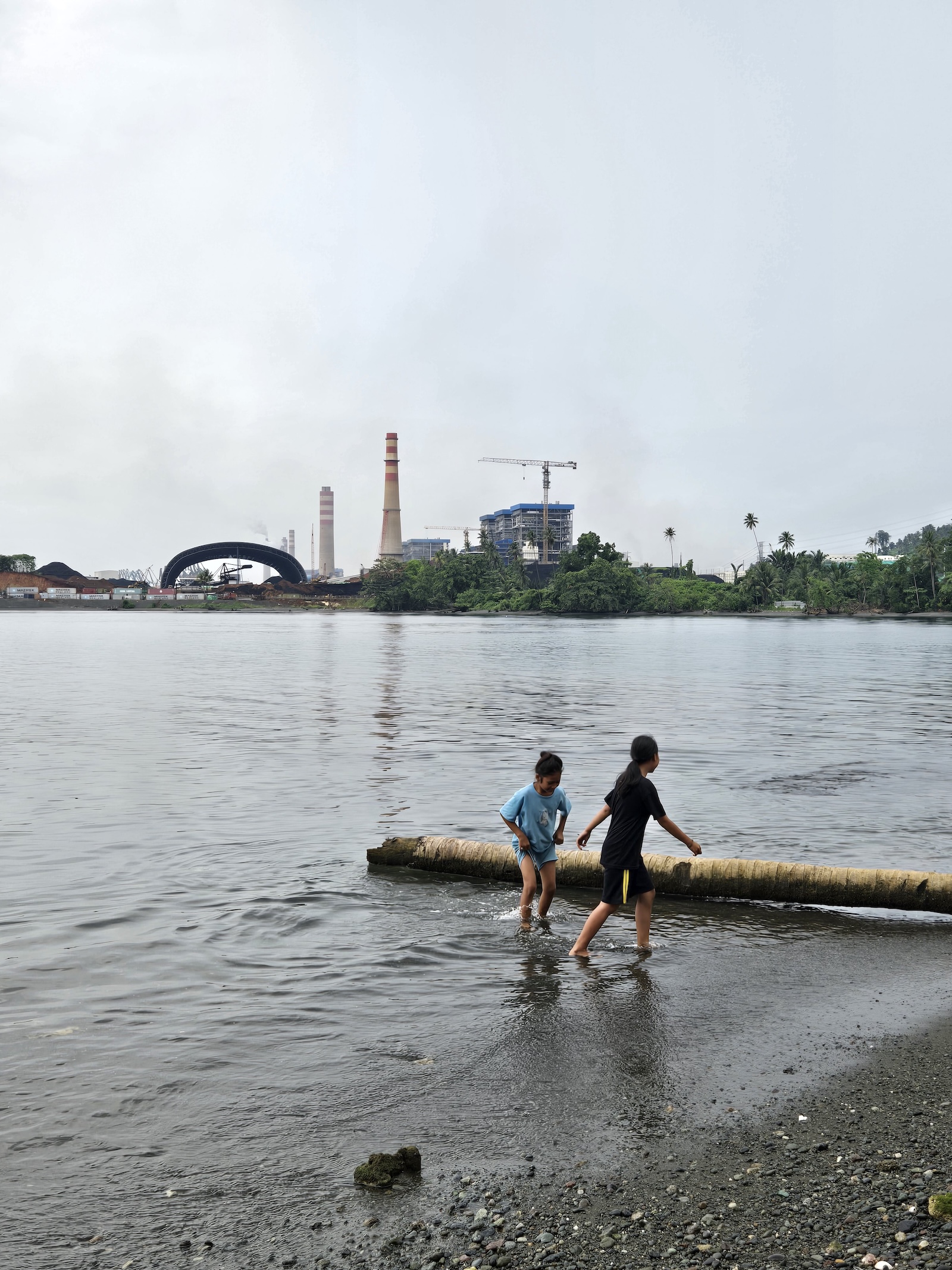
Wufei Yu
In 12 nearby villages, the number of children with signs of stunted growth due to malnutrition and gastrointestinal infections increased by 50 percent in two years. “Officials and agencies know about all this,” an environmental consultant and author of part of the report, who chose to remain anonymous for fear of retribution at work, told Grist. Hardly any of the health and environmental risks were present before the construction of the Morowali Industrial Park in 2013, they said.
Despite the various business and job opportunities the compound has brought to Morowali, the internal report says that “the community has great concerns about the environmental risks from [the park’s] industrial activities and expansions. If in its development, the company doesn’t pay attention to environmental, health, spatial planning, and social-community risks, then resistance from local communities can be immense.”
In June, Indonesia’s Ministry of Environment said it had found “serious” environmental breaches at the industrial park in Morowali and sought to fine and further investigate the company over failures in managing wastewater and air pollution, which exceeded permissible levels, as well as unlicensed construction. In July, the Morowali Industrial Park told Grist that it complies with “Indonesian laws regarding air, water, and solid waste, and have issued regulations for tenant companies” to improve. They said their companies “have invested in equipment for air treatment, wastewater, and hazardous or solid waste in accordance with regulations.”
In an email, the Weda Bay Industrial Park told Grist that the complex and all tenant companies are in “strict compliance with applicable laws, licensing requirements, and operational standards set by the Government of Indonesia.” The company remains committed to “maintaining open communication with stakeholders, and constructively addressing concerns through continuous improvement of its environmental management and community engagement programs.”
(Indonesia’s Ministry of Manpower, Ministry of Environment and Forestry, and Coordinating Ministry for Maritime and Investment Affairs didn’t reply to requests for comment.)
Yet as eastern Indonesia’s nickel industry grows, Chinese migrant workers still don’t have a seat at the table in discussions about their careers and safety.
In late February, I flew to China’s Shanxi Province and drove to meet Wong during one of the two-week breaks he’s permitted twice per year. Low-rise residences and corn fields lined the national highway leading to Wenxi County. Before arriving at Wong’s village, it was hard to miss the rows of chimneys and blast furnaces of the local steel factory overlooking the barren farmland at the heart of the Loess Plateau. In alleys around the quiet concrete jungle, plaques of shuttered nightclubs and internet cafes recalled the factories’ heyday two decades ago.
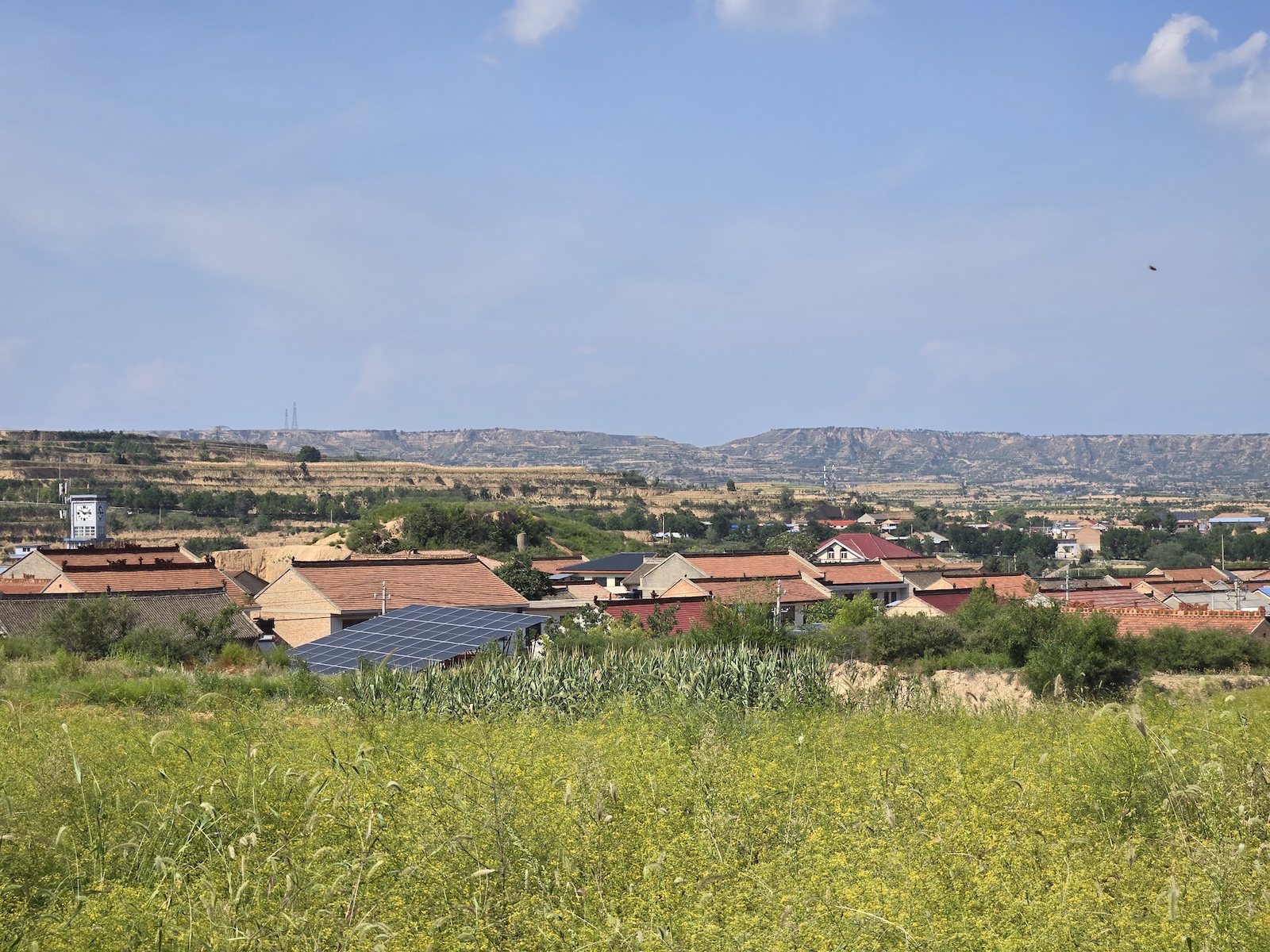
Wufei Yu
Nowadays, Wenxi is listless. Village primary schools closed down one after another as families moved to bigger cities, and young people were nowhere to be seen on the street. The scene is typical of coal- and iron-rich Shanxi, the only Chinese province that logged a negative economic growth rate in 2024. The only location on Wenxi’s main drag that got some foot traffic was a three-star hotel, where Tsingshan was hosting its signature job fair.
Wong waited for me at the entrance of his village. He greeted me with a warm smile and spoke softly. As we sank into his couch and sipped on the overly sweet instant Indonesian coffees he’d brought back from North Maluku, the conversation turned to the nickel furnaces.
At the beginning of each shift, Wong would talk about safety protocol and daily tasks, and an interpreter would translate for his Indonesian subordinates. Following the orders of his supervisors, he’d ask his coworkers to press their right hands on their left chests and shout a slogan out loud: “For ourselves, for our families, for our coworkers, we must stick to standard positions, do standard work, and be safe.”
His daily tasks included managing dozens of 50-foot pipes used to add ingredients to the smelter, and constantly checking to make sure three electrodes hanging from the ceiling of the 80-foot smelter had not been overburned.
“If one of them is burnt and you notice too late, it could lead to a serious explosion,” Wong said. “The longer I’ve worked on the smelters and come to understand the ins and outs of the operation, the more I feel scared, not less.”
At dusk, as the low winter sun dyed the empty fields around his house orange, Wong’s wife picked up their two children from the village school and came home. Reluctant to do homework, Wong’s son begged him to play games on his mobile phone.
“You gotta study hard to make money with knowledge,” Wong said, his voice becoming unusually hardened. “You can’t rely on your actual life to make money like your father. Do you hear me?”
Sri Mauliani and Riza Salman contributed reporting and research.
Source link
Wufei Yu grist.org

